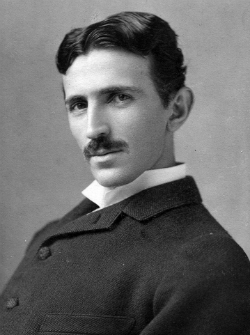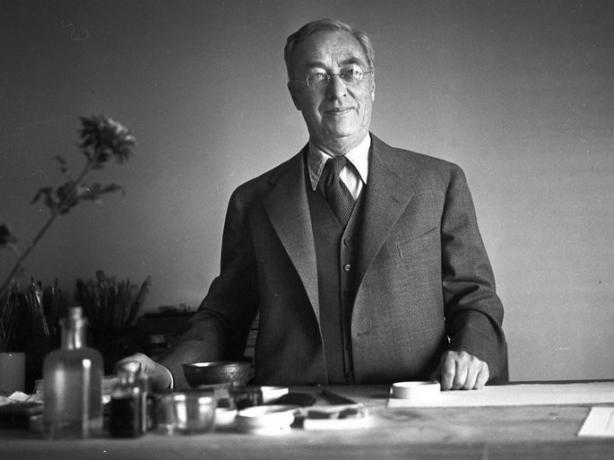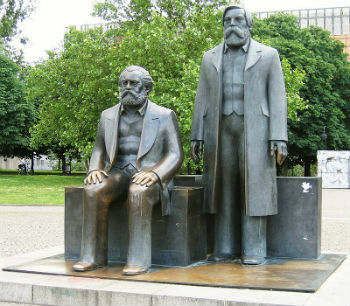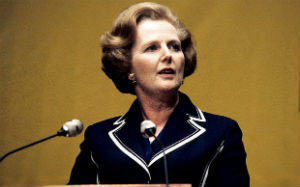Nikola Tesla was an Austro-Hungarian scientist, mechanical engineer and inventor.
His inventions contributed to the advancement of technology and his studies revolutionized areas such as computer science, theoretical and nuclear physics.
Today, he is considered one of humanity's greatest geniuses and one of the most important visionaries of that time, alongside Albert Einstein and Isaac Newton.
With a unique temperament and a brilliant mind, Nikola Tesla had difficulty getting along with people and was fluent in many languages.
Biography

Nikola Tesla was born in Smiljan on July 10, 1856. At the time, it was a region belonging to the Austro-Hungarian Empire. Currently, the site is part of Croatian territory.
From an early age, his father was his biggest inspirer. So he focused on educating the boy to develop logical thinking. At school he stood out with his speed, intelligence and photographic memory.
He joined the Polytechnic Institute of Graz, Austria, with the intention of earning a degree in Electrical Engineering.
He later transferred to the University of Prague, however, he never finished the course. However, it was there that his interest and fascination for electrical engineering was awakened.
So, in 1881, Tesla started working for a telephone company in Budapest, now Hungary. With his experience he was working with Thomas Edison in New York.
Although this union was very fruitful, at one point, the two scientists created a theoretical impasse on direct and alternating currents.
Edison did not agree with the theory outlined by Tesla about alternating currents. However, today the Tesla model is the most used and efficient to transmit energy over great distances.
This was why Tesla refused to share the Nobel Prize with his rival in 1912. Therefore, at the time, the award was given to another scientist.
Tesla was awarded the title Honoris Causa by Yale University and Columbia. In addition, he received the Elliot Cresson and John Scott medals.
The inventor died in New York, United States, on January 7, 1943, aged 86 years. The scientist died poor and lonely.
Did you know?
As important as his contributions were, July 10th in the United States is commemorated the “Day of Tesla” dedicated to the inventor.
Furthermore, his name was transformed into a standard unit (T) that serves to measure the density of the magnetic field.
In 2006 the movie "The Prestige" directed by Christopher Nolan. The work has Nikola Tesla as a character.
Nikola Tesla Museum

Facade of Nikola Tesla Museum in Belgrade, Serbia
In the city of Belgrade, Serbia, in 1952 the Nikola Tesla Museum. The place gathers objects, documents, photographs and instruments used by the inventor.
Main Inventions
Nikola Tesla was a great inventor and his studies were focused on the areas of mechanical and electrical engineering. His main contributions are related to technology and robotics.
During his lifetime he worked incessantly and in total Tesla holds about 700 patents. Of his greatest inventions, the following stand out:
- Fluorescent lamp
- radio transmission
- Remote Control
- induction motor
- Alternating current
- Ignition System
- tesla coil
Sentences
- “Today's scientists think more deeply than clearly. One needs to be sane to think clearly, but another can think deeply and be almost sane.”
- “Let the future speak the truth and rank each according to their work and achievement. The present tense belongs to each one. The future, which I've been really working on, is mine.”
- “To me, the universe is simply a big machine that never came into being and will never cease to exist. The human being is no exception to the natural order. Man, like the universe, is a machine.”
- “The science of electricity has revealed to us the true nature of light, has provided countless precision applications and instruments and thus has vastly added accuracy to our knowledge.”
- “Our virtues and our faults are inseparable, like force and matter. When they separate, man is nothing else.”
- “As in nature, everything is flow and tide, everything is wave motion. So it seems that in all branches of industry, alternating currents and electric wave movements, everything will have oscillations.”
Also read about:
- magnetic force
- Magnetic field
- radio history



